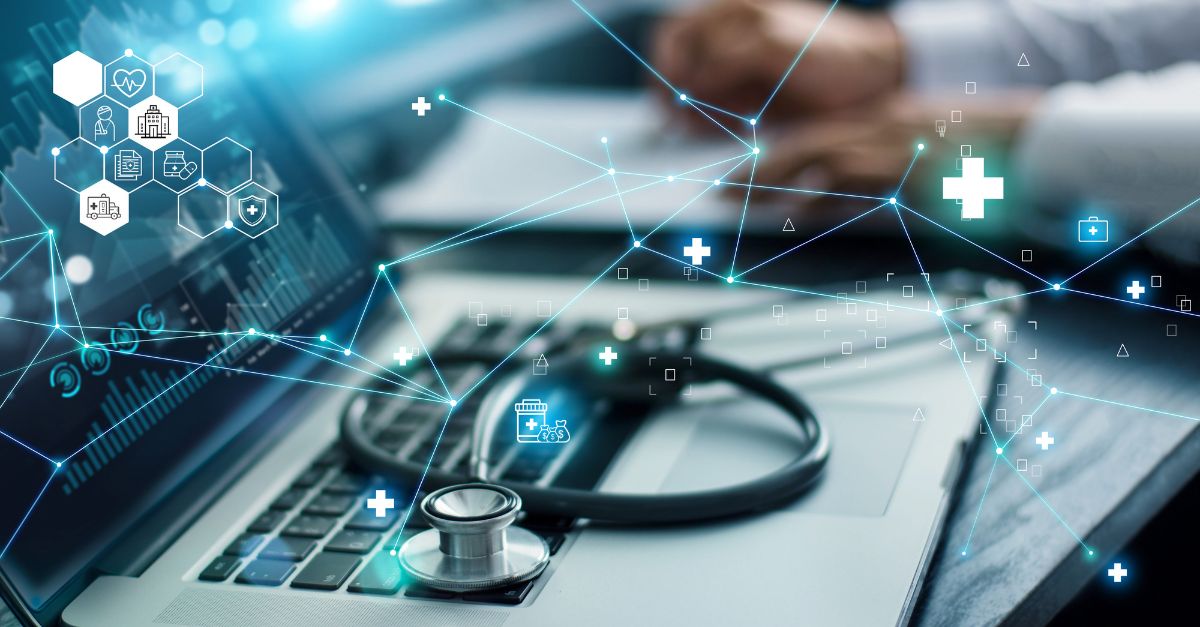Healthcare organizations of all sizes are under constant pressure to protect sensitive patient data and secure the many devices within their networks.
With the array of cyber threats becoming increasingly more sophisticated day by day, the need for strong and reliable security measures is more pressing than ever.
Digital certificates offer a practical solution to address these challenges, providing a way to authenticate devices, encrypt communications, and meet the requirements of important healthcare regulations like HIPAA.
Using digital certificates, healthcare providers can better defend against cyberattacks and maintain the trust of their patients. Let’s take a look at exactly how they can accomplish this.
The Growing Cyber Risks Affecting Modern Healthcare
The healthcare industry is currently in the midst of a major digital transformation, with electronic health records or EHRs and telemedicine or telehealth swiftly becoming the new norm.
These advancements promise improved patient care and more efficient operations, but they also bring a new set of challenges. With healthcare organizations becoming increasingly reliant on digital solutions, they become prime targets for cyber threats of all kinds.
Among the most pressing cybersecurity threats in healthcare are data breaches and ransomware attacks:
- Data breaches can expose sensitive patient information, leading to identity theft, financial fraud, and other serious consequences
- Ransomware attacks, where cybercriminals lock down systems and demand payment to restore access, can affect a healthcare provider’s ability to deliver care. These attacks don't just disrupt operations; they can also put patients' lives at risk by delaying treatments or even compromising critical systems
On top of this, the potential fallout that a healthcare organization can experience from a cyber-attack can be severe:
- Financially: Organizations may face significant costs for recovery, including paying ransoms, rebuilding systems, and managing the legal fallout
- Legally: They may be subject to fines and penalties, especially if they don’t comply with regulations like HIPAA that mandate strict data protection measures
- Reputational Damage: The damage that organizations may face can also be devastating, eroding patient trust and impacting their long-term viability
The Increasing Importance of Digital Certificates in Healthcare
Digital certificates function as electronic passports, verifying the identity of devices, users, and websites.
Within a healthcare setting, they prove to be essential tools for securing digital interactions, making sure that authorized entities are the only ones who can access sensitive information housed within systems.
These certificates create an encrypted connection between systems, protecting data during transmission and preventing unauthorized access to it. In the modern healthcare industry, organizations employ several different types of digital certificates:
- SSL/TLS Certificates: Secure communications between web servers and browsers, protecting patient data shared through online portals and telemedicine platforms.
- Code-signing Certificates: Validate the integrity of software applications, confirming that they haven’t been tampered with or altered by malicious actors.
- Device Authentication Certificates: Designed to secure the increasing number of connected medical devices, including insulin pumps and heart monitors, verifying that they are legitimate and authorized to operate within the network.
Digital certificates are key to protecting modern healthcare systems, along with the data and devices within them. Healthcare organizations are handling increasingly vast amounts of sensitive information, including patient records and financial details, which require strict control over access.
Thankfully, digital certificates provide a reliable mechanism for this, making sure that all interactions within a healthcare system are secure and trustworthy.
Securing Medical Devices with Digital Certificates
The healthcare industry is seeing a rapid increase in the use of IoT and connected medical devices, from smart insulin pumps to remote heart monitors.
These devices are transforming patient care by enabling real-time monitoring and more personalized treatment plans—however, their newfound connectivity also introduces new security challenges.
Every device on the network can be an attack vector for bad actors, who could manipulate vulnerabilities to get unauthorized access to sensitive data or potentially even disrupt medical procedures. Unsecured medical devices pose several significant risks for healthcare organizations of all sizes.
For instance, a compromised device could lead to incorrect dosage administration, potentially putting patients' lives at risk. Alongside this, unauthorized access to these devices could result in data breaches, exposing sensitive patient information and damaging the trust between healthcare providers and patients.
Digital certificates offer a solution to these security concerns by authenticating connected medical devices by verifying the identity of each device before it connects to the network so that only authorized devices can access and transmit data.
Encrypting Modern Healthcare Communications
For the healthcare industry, secure communication channels are essential for protecting sensitive patient information in transit and at rest.
Whether it’s data shared between doctors, patients, or insurance providers, the need to keep this information confidential cannot be overstated. Unencrypted communications are vulnerable to interception by cybercriminals, who could misuse the data for fraud, identity theft, or other malicious purposes.
The act of encrypting data during transmission relies heavily on digital certificates, particularly SSL/TLS certificates.
These certificates create an encrypted connection between communicating parties so that any data shared remains confidential and inaccessible to unauthorized individuals. The encryption process converts the data into a code that only intended recipients can decipher, protecting it from potential cyber threats.
Meeting Regulatory Standards with Digital Certificates
The healthcare sector operates under some of the most stringent regulations when it comes to data security.
Regulations such as HIPAA in the United States along with GDPR in the European Union each set strict guidelines on how patient information must be handled. These laws are in place to protect patient privacy and make sure that sensitive data is managed with care.
Digital certificates play an important role in helping healthcare organizations remain compliant by securing data through encryption, verifying the identities of users and devices, and providing legally binding electronic signatures. To further enhance security and compliance, healthcare data must be hosted in HIPAA-compliant environments located in the most secure locations.
The combination of secure hosting and digital certificates guarantees that sensitive healthcare information remains protected, even in the face of advanced threats. This approach protects patient information while also creating a clear, auditable record that demonstrates compliance with all required regulations and standards.
Furthermore, demonstrating a commitment to high-security standards helps build that ever-important trust with patients, reassuring them that their personal information is being handled securely, and, if need be, minimizing their legal risks.
The Future of Healthcare Security
As people within it can attest to, the healthcare industry is constantly changing, with trends like home-based care and virtual consultations becoming increasingly more prominent by the day.
These ongoing shifts offer greater convenience and accessibility for patients, but they also introduce new security challenges as more data is transmitted and stored digitally. That means both doctors and adjacent personnel have to be adept at secure data extraction and similar techniques while being constantly educated about the latest cybersecurity best practices.
Digital certificates will be essential in securing these emerging healthcare models. As healthcare continues to move online, certificates will play important parts in protecting patient data and ensuring that only authorized individuals have access to this sensitive information.
Healthcare providers should act now to integrate these digital certificates into their broader security strategies. Proactively adopting these tools will help them stay ahead of future challenges so that they’re well-prepared to navigate the ongoing digital transformation in healthcare.
Wrapping Up
With the healthcare industry becoming increasingly more digital, the necessity to safeguard sensitive information grows more urgent.
Healthcare providers should act now to actively integrate digital certificates into their security practices. Adopting this proactive approach will help them tackle current cybersecurity threats while preparing for the future, where digital interactions will become even more common.
Note: This blog article was written by a guest contributor for the purpose of offering a wider variety of content for our readers. The opinions expressed in this guest author article are solely those of the contributor and do not necessarily reflect those of GlobalSign.







